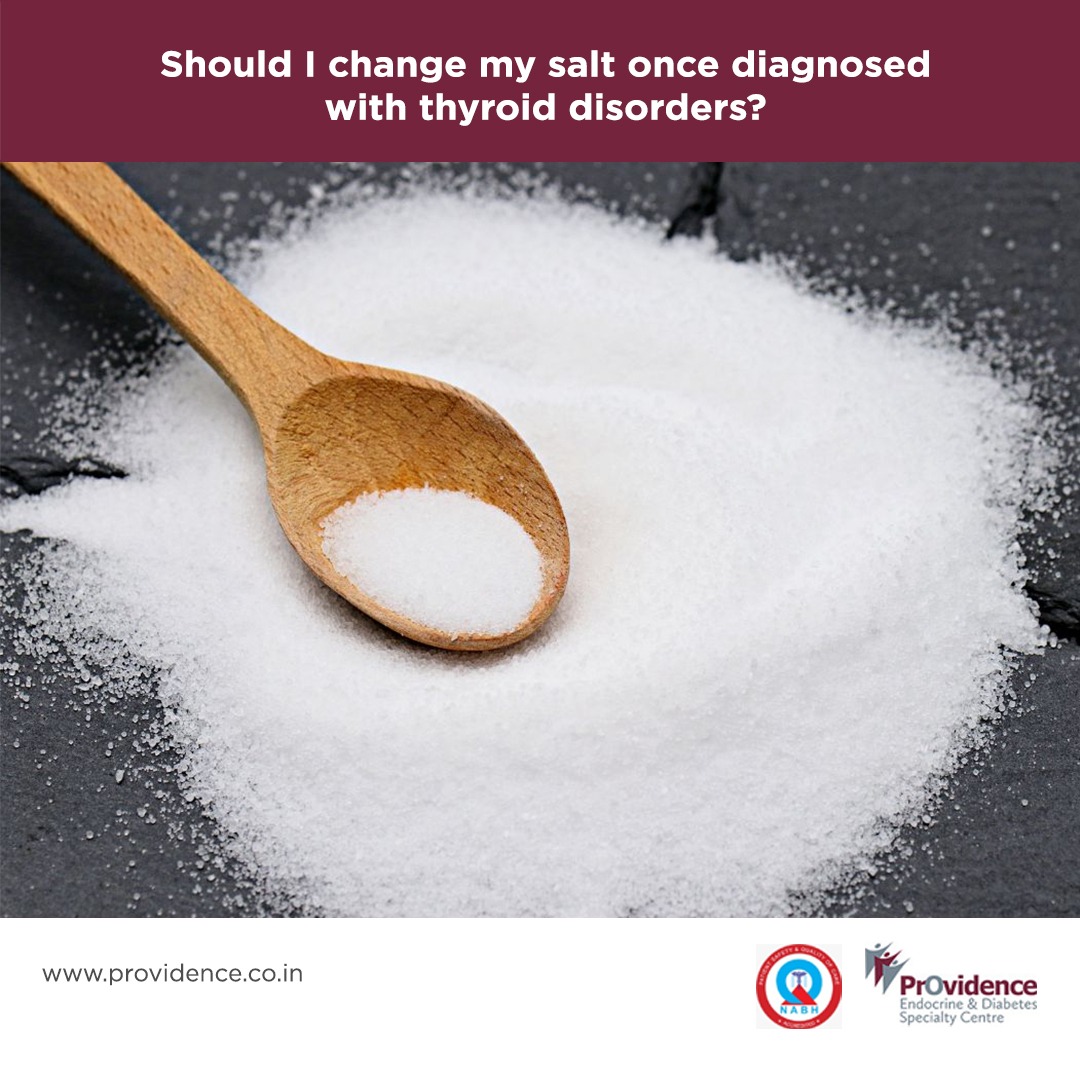Iodine is a trace mineral that your body needs to produce thyroid hormones: thyroxine (T4) and triiodothyronine (T3). The thyroid gland is vital in regulating metabolism, energy levels, and overall hormonal balance.
However, once diagnosed with a thyroid disorder, such as hypothyroidism or hyperthyroidism, an individual’s iodine needs and the type of salt they consume may need to change. Understanding the relationship between iodine intake and thyroid function is essential for managing thyroid health effectively.
For individuals with hypothyroidism, particularly when caused by Hashimoto’s thyroiditis, salt intake should be moderate and carefully considered in relation to iodine. While iodine is essential for thyroid hormone production, excessive iodine can actually worsen autoimmune thyroid conditions like Hashimoto’s.
In hyperthyroidism, especially when caused by autoimmune conditions like Graves’ disease, salt intake should focus on limiting iodine, as excessive iodine can worsen thyroid hormone overproduction. In this case, it is generally recommended to avoid iodized salt and choose non-iodized options like natural sea salt or Himalayan salt that do not contain added iodine.
• Never start or stop iodine intake without medical advice. Both too much and too little iodine can cause or worsen thyroid problems.
• Processed foods often use non-iodized salt, so they contribute to sodium intake but not iodine. Balance this with whole foods.
• Get your iodine levels tested if your doctor suspects an imbalance.
• Ask your doctor whether you need iodized or non-iodized salt.
Use salt in moderation, regardless of type, to avoid excess sodium intake.
Mrs. Revathy V K, MSc



